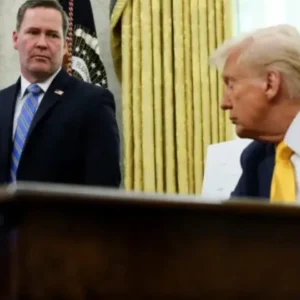This has never happened before in the history of the Federal Republic: Friedrich Merz (CDU) has failed in his first attempt to be elected chancellor. There will be no second round of voting today.
In a surprise result, Friedrich Merz (CDU) failed to secure the necessary majority in the first round of voting for the chancellorship. In a secret ballot, the CDU/CSU leader received only 310 of the 621 votes cast – six short of the absolute majority of 316 votes. This is a bitter setback for the designated chancellor and his coalition.
The CDU/CSU and SPD alliance together have 328 seats in parliament. This makes the irritation in the governing factions – especially within the Union – all the greater. Immediately after the result was announced, Merz left the plenary chamber visibly tense and without comment. A crisis meeting was immediately convened within the CDU/CSU.
No agreement on a second ballot – AfD blocks procedure
A second ballot would have been possible on Tuesday, but the unanimous approval of all parliamentary groups required for this did not materialize. The AfD refused to give its consent, delaying the election process.
According to Article 63 of the Basic Law, the Bundestag now has up to 14 days to elect a chancellor with an absolute majority in further ballots. New candidates can also be nominated during this period – however, Merz can also run again, which is currently expected.
If no chancellor is elected by an absolute majority within this period, the Basic Law provides for a final ballot by a simple majority. In this third round, it is sufficient to receive the most votes in parliament, even if it is not an absolute majority.
In this case, the decision rests with the federal president: he can either appoint the candidate, even without an absolute majority, or dissolve the Bundestag and call new elections. However, this option is considered a last resort in government circles, as it would usher in a period of considerable uncertainty.
For Friedrich Merz, the failed election is a massive setback – and an indication of dissident voices within his own ranks. Political observers speak of a possible loss of confidence in the coalition, but also of growing pressure on the CDU leader to ensure discipline within the party.
Whether Merz will achieve the necessary majority in the next attempt now depends crucially on whether the coalition manages to close ranks – and whether there will be further candidates from the opposition camp.
Image:
APA















Recent Comments